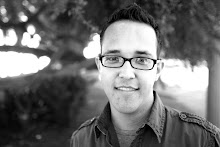I’m currently in the middle of the finals crunch, and my head has become a swirl of theories and names and books. This semester I have been lucky to take a wonderful selection of courses on topics that are absolutely fascinating to me, so even though I have brain-fatigue from writing my various term papers, it is almost worth it.
Today I handed in a terribly confusing paper about self-identity and theology. Drawing on Giving an Account of Oneself by Judith Butler and Paul Ricoeur’s narrative identity theory, I argued that every time I try to talk about who I am, every time I try to identify myself through narrative, I am simultaneously doing theology. Strange, I know. And, no, there is no way I can explain it in a single blog post. But it got me thinking….
Talking about God is one thing—a very difficult and worthwhile thing, no doubt—but relating to God is very different. At the heart of a relationship with God, at the heart of Christian belief, is mysticism. While this is likely not surprising to most people, it is not normally how I think about it.
In the study of religion, especially historical theology, mysticism is often singled out as its own branch. While some scholars don’t like the distinction, it is often contrasted with movements like scholasticism. But the thing is, Christian belief is always mystical.
Now, the flavor of Christianity that I was raised with had an interesting relationship with mysticism (though it would never have used that term). It was made very clear that real Christians weren’t like those crazy people who spoke in tongues and got healed and ran around the sanctuary with flags and tambourines. Those sorts of things were written off as feelings, as momentary—they weren’t real Christianity.
Real Christianity was about knowing the truth. It was about believing that Jesus was the Son of God who came to earth and died for our sins. It was about believing in the trinity and the dual-nature of Christ. It was about fighting the good fight, about renouncing the devil and living a life of faith—something that could not be pinned down by reason.
So, even though certain expressions of Christian faith were written off as bogus and unrealistic, we were asked to embrace something that was admittedly non-rational. But I didn’t realize that back then.
Here I am now, years later, studying theology in an academic setting. I’m writing papers about the efficacy of God-talk by Hindu theologians, about the connection between narrative identity and theology, and about the rhetorical structures of works of Christian ethics—but Christian belief is mystical. That’s not to say it is wholly non-rational, somehow devoid of reason. It can be reasonable and rational and intelligent—but it has to be more than that. It has to go beyond that. If it doesn’t, it is nothing more than a set of textbook answers, interesting to study, but not relevant to anything at all.

